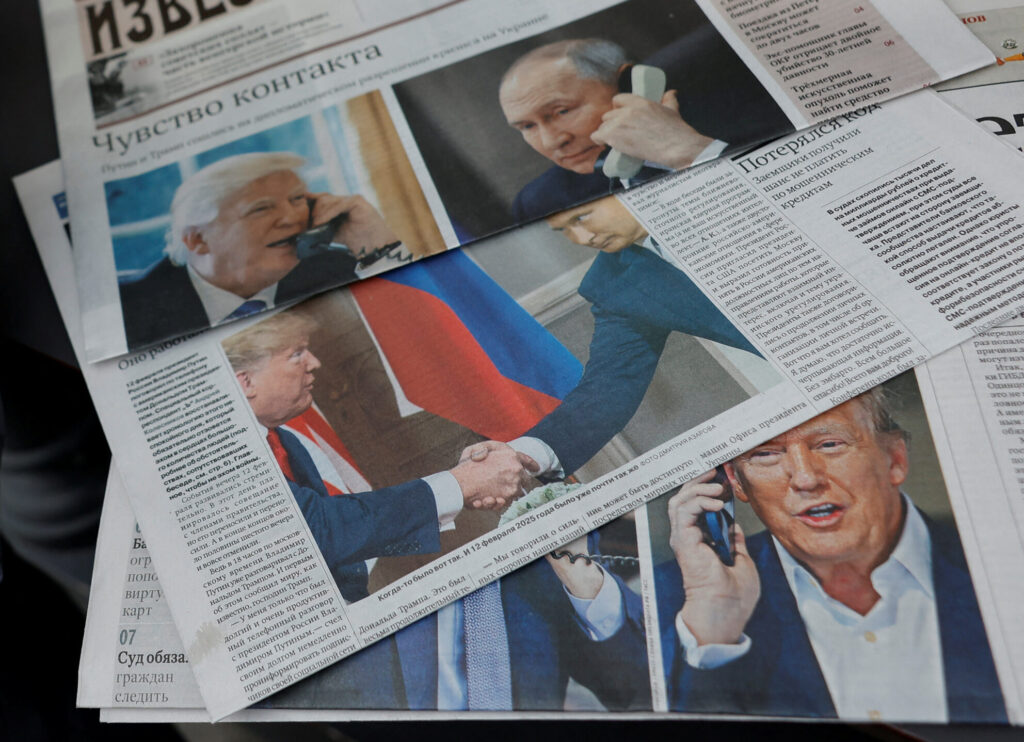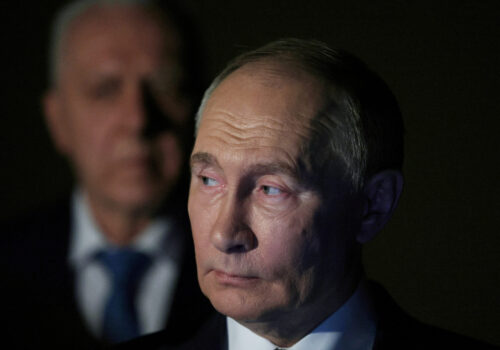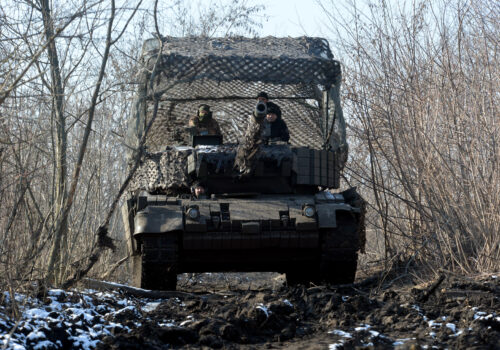As the Trump administration seeks to reset relations with Russia as part of a peace process to end the war in Ukraine, Moscow is pushing the idea of increased economic cooperation. During landmark bilateral talks in Saudi Arabia earlier this week, the Russian delegation included the Kremlin’s top investment manager, Kirill Dmitriev, who heads Russia’s sovereign wealth fund. Dmitriev explained that US companies had lost more than $300 billion since 2022 due to withdrawing from the Russian market. Meanwhile, Russian Foreign Minister Sergei Lavrov reported “great interest” among participants “in removing artificial barriers to the development of mutually beneficial economic cooperation.”
This approach seems tailored to appeal to US President Donald Trump, who has since spoken favorably about the potential economic upside of a thaw with Russia. However, it remains to be seen whether foreign companies will be eager to return to Russia, given the experience of the past three years. Since Russia’s full-scale invasion of Ukraine began in February 2022, more than a thousand international companies have exited the Russian market. Others have had their assets seized. Companies mulling renewed operations in Russia will have to weigh up the potential profits again a lack of property rights and other risks that could end up costing shareholders.
Stay updated
As the world watches the Russian invasion of Ukraine unfold, UkraineAlert delivers the best Atlantic Council expert insight and analysis on Ukraine twice a week directly to your inbox.
With few exceptions, international companies that left Russia in the aftermath of the full-scale invasion walked away from subsidiaries worth millions or billions of dollars. It is safe to assume that the majority had to write down most, if not all, of the value of their investments in Russia. Some companies managed to sell assets, often to Kremlin cronies at knock-down prices. A few retained an equity interest in the hopes of an eventual rebound in the market. Virtually nobody emerged unscathed.
Companies left Russia in the aftermath of the invasion for a variety of motives. To their credit, some simply found it morally indefensible to remain there while Russia’s tanks rolled across international borders and its troops committed war crimes in Ukraine. Many businesses were less concerned about the morality of continuing to operate in Russia, but were nevertheless sensitive to guilt by association and possible damage to their reputation. Others weighed the benefits of staying in Russia against the cost of complying with international sanctions.
The companies that left Russia for moral reasons are unlikely to go back in the foreseeable future. This is also the case for companies seeking to safeguard their brand reputations. However, when the pickings seem rich, some may jump at the opportunity or bottom fish for low-priced assets. If another reset in US-Russian relations comes about, the United States government might provide inducements for a resumption of bilateral business ties, such as export credit guarantees, political risk insurance, and official backing for equity participation in major projects.
Taking another chance on Russia might seem appealing to some. After all, memories can be short in the business world. It is easy to imagine a new wave of corporate titans overlooking the lessons that a previous generation of expat CEOs learned during the last period of enthusiasm for expansion into Russia. Before proceeding, however, they would be well advised to study the current realities. Today’s Russia is not the country of Boris Yeltsin, who saw the West as a partner. It is not even the Russia of the early 2000s, before Vladimir Putin had fully consolidated his grip on power and completed the transition from fledgling democracy to authoritarian regime. After twenty-five years of Putin’s rule, the Kremlin now dominates all aspects of Russian life, including the country’s business climate.
Eurasia Center events

As a diplomat and business executive in Moscow in the 1990s and 2000s, and later as head of the US-Russia Business Council, I had a front row seat to the evolution of Russia from a centralized, state-controlled economy into a free market with a vibrant private sector, followed by its devolution into an oligarch-controlled system that more closely resembled a organized crime syndicate than a developed economy. During this period, I encountered a wide range of investors seeking advice or support in coping with the predatory conduct of Russian business partners or the Russian state.
Back then, there was a tendency to attribute most of the problems facing international companies in Russia to the growing pains of an economy emerging from communism. However, the signs of institutionalized corruption gradually became undeniable, including the imprisonment of business leaders and the seizure of companies by state-linked groups. These issues have not gone away; in many cases, the challenges have become even greater.
If a peace agreement is forthcoming, senior executives in Europe and North America will have to assess whether the potential profits from renewing operations in Russia are worth the many risks this would involve. Will major international oil and gas companies that previously invested in Russia want to return to a country where the state must hold a majority stake in any project, and where they are required to sell their gas to a state monopoly? Will any investor want to be at the mercy of the Russian judicial system?
The non-Russian staff of international companies may also not be entirely safe living and working in Putin’s Russia. In recent years, the Kremlin has been accused of arresting numerous foreign nationals on dubious charges in order to use them as bargaining chips in negotiations for the release of Russian criminals and spies being held in Europe and the United States. Any businesses that choose to send staff to Russia will be well aware that they cannot count on the rule of law if their employees become pawns in Moscow’s geopolitical games.
The Kremlin’s efforts to entice Trump with the prospect of mutually beneficial business cooperation make sense. Russia certainly has much to offer, including a vast domestic market and access to unrivaled natural resource wealth. However, it would be naive to expect individual companies to immediately rush back to Russia in light of the very real concerns that exist over the rule of law and the overbearing influence of the Kremlin on the country’s business environment.
Edward Verona is a nonresident senior fellow at the Atlantic Council’s Eurasia Center covering Russia, Ukraine, and Eastern Europe.
Further reading
The views expressed in UkraineAlert are solely those of the authors and do not necessarily reflect the views of the Atlantic Council, its staff, or its supporters.

The Eurasia Center’s mission is to enhance transatlantic cooperation in promoting stability, democratic values and prosperity in Eurasia, from Eastern Europe and Turkey in the West to the Caucasus, Russia and Central Asia in the East.
Follow us on social media
and support our work
Image: Daily newspapers with covers, dedicated to the recent phone call of Russian President Vladimir Putin and U.S. President Donald Trump, are laid out at a newsstand in a street in Moscow, Russia, February 13, 2025. REUTERS/Maxim Shemetov/Illustration




